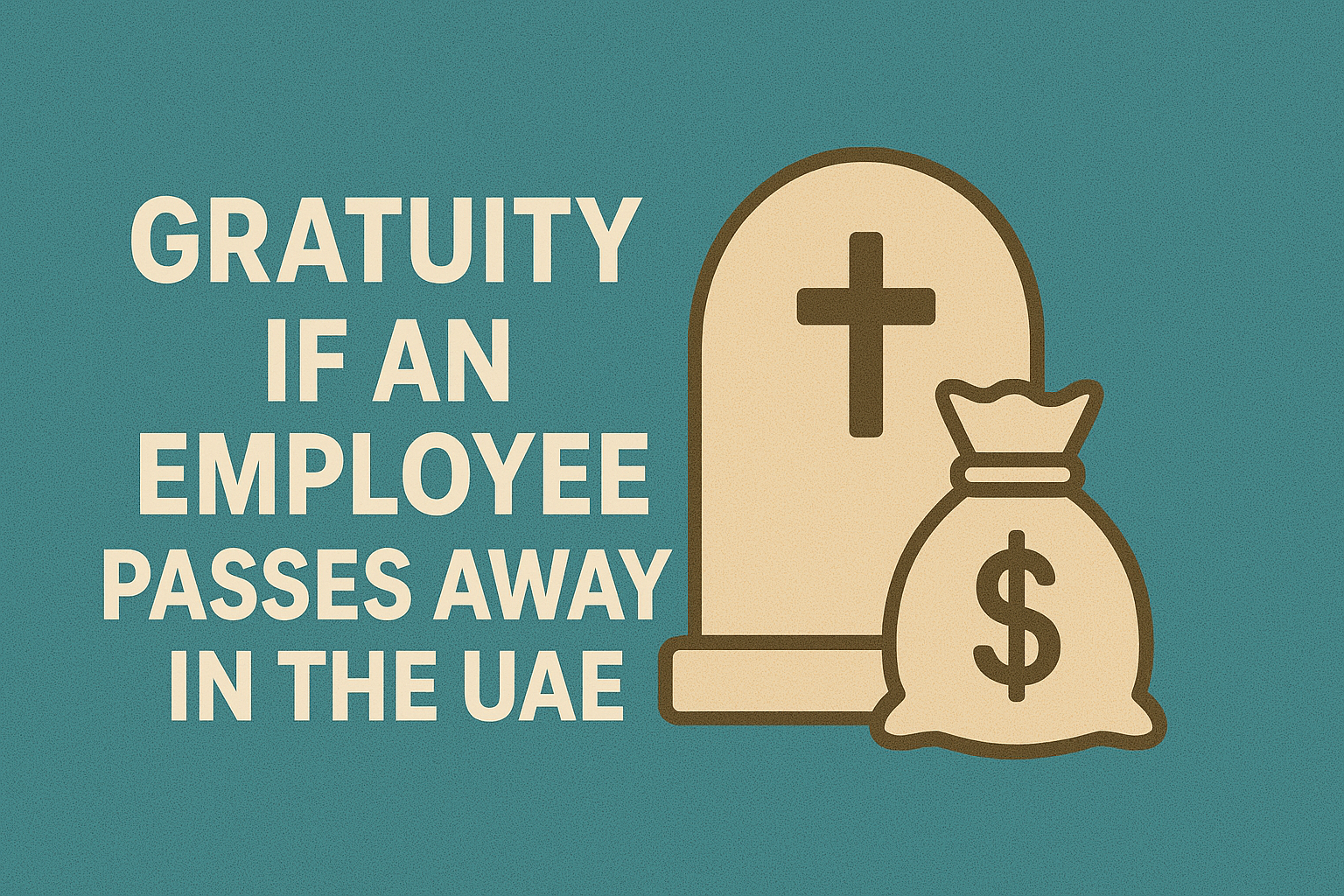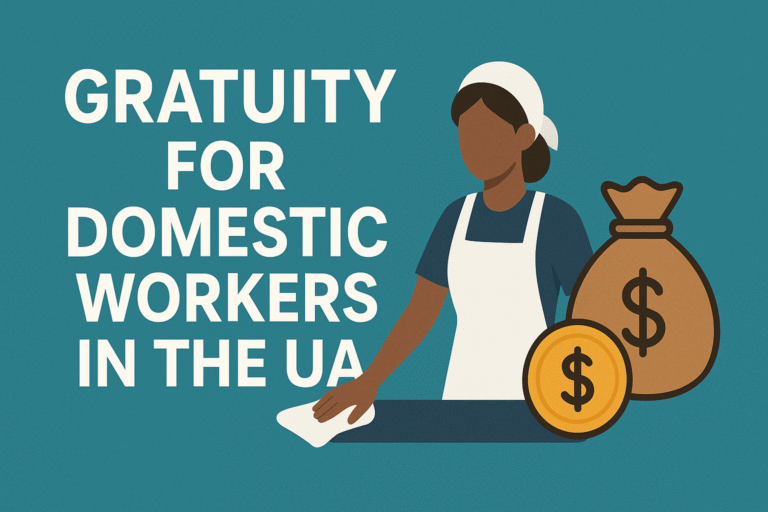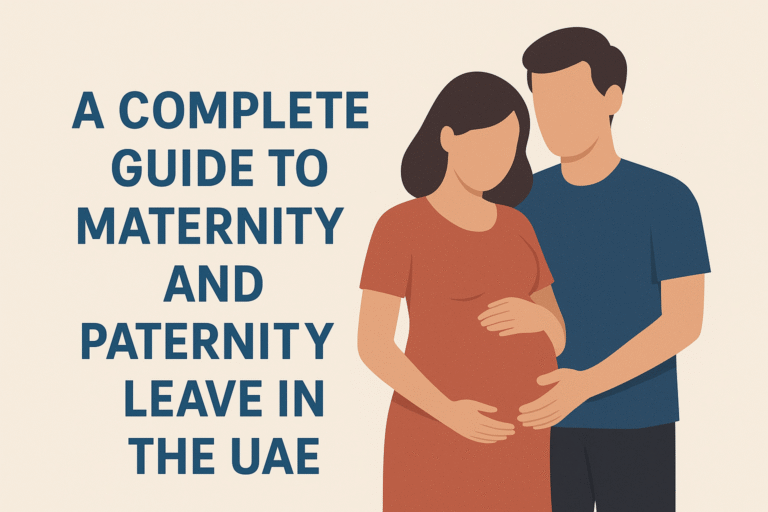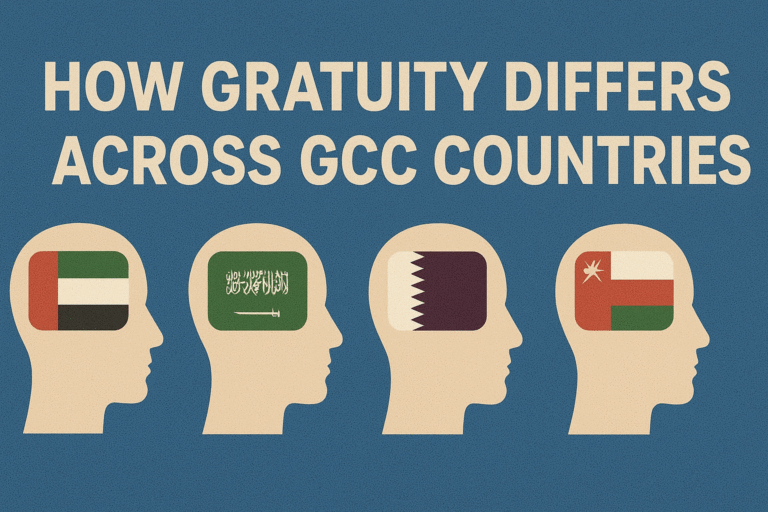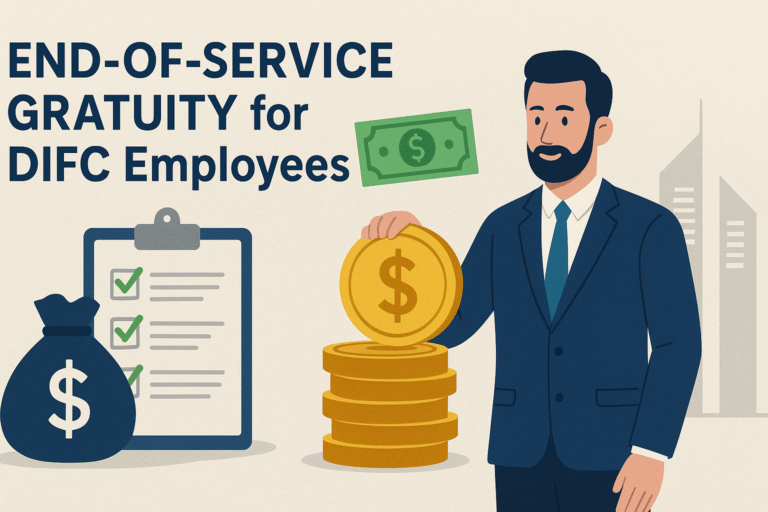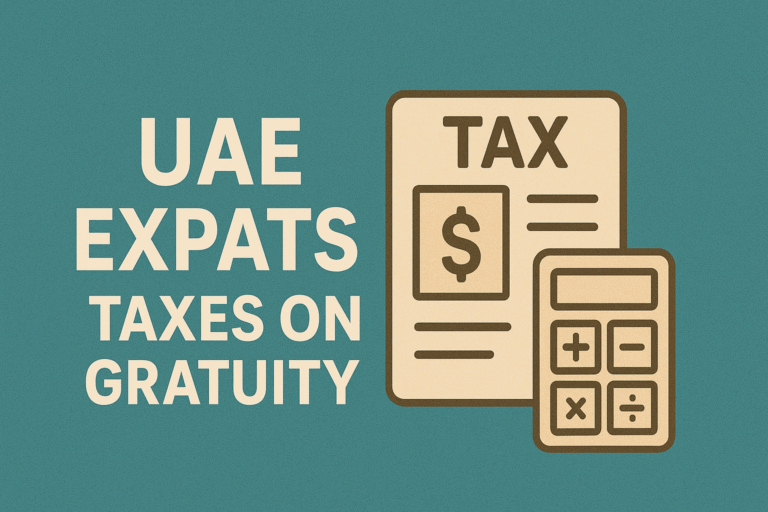What Happens to Gratuity if an Employee Passes Away in the UAE?
Gratuity in the UAE is a mandatory end-of-service benefit, a monetary payment that employers owe their employees as a token of appreciation for their service. For the millions of expatriates who call the UAE home, this payment is a crucial part of their financial planning. But a difficult and often overlooked question arises: what happens to this entitlement if an employee tragically passes away while still employed?
Losing a loved one is devastating, and navigating legal and financial matters during such a time can be overwhelming. Understanding the UAE’s legal provisions for this situation is vital for both employees planning for their family’s future and employers seeking to fulfill their obligations correctly and compassionately. This article provides a clear, comprehensive guide on the laws, calculations, and procedures concerning gratuity payments after an employee’s death.
Legal Framework for Gratuity in Case of Death
The UAE Labour Law is clear and protective when it comes to an employee’s end-of-service benefits, even after their passing. The legal framework ensures that the fruits of their labour are passed on to their family.
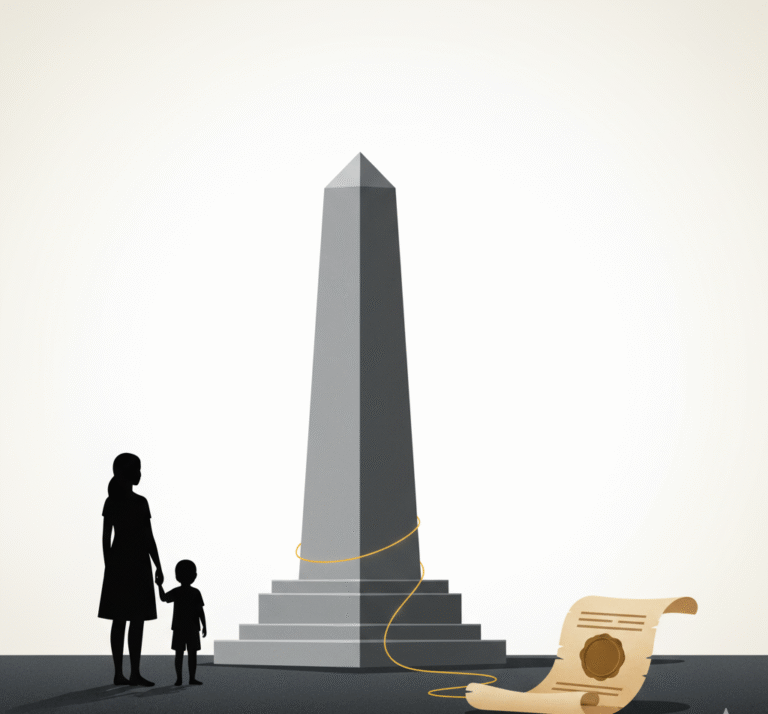
UAE Labour Law Provisions
Under Federal Decree-Law No. 33 of 2021, the entitlement to gratuity is not forfeited upon death. The law treats the situation as an end to the employment contract, meaning the full end-of-service benefits, including the gratuity, become due. This right is absolute, regardless of the employee’s length of service.
Employer’s Legal Obligations
The employer has a direct legal obligation to pay out the deceased employee’s full financial dues. This includes their final salary, any accrued but unused leave pay, and the complete gratuity amount calculated up to the employee’s last day of work.
Deadlines for Settlement (14-day rule)
Article 53 of the UAE Labour Law mandates that employers must settle all end-of-service entitlements within 14 days from the employee’s contract end date. In the case of death, this period starts from the date of passing. Prompt settlement is not just a moral duty but a strict legal requirement.
Calculation of Gratuity
The gratuity calculation remains the same, whether the employment ends due to resignation, termination, or death. It is always calculated based on the employee’s last drawn basic salary, excluding any allowances for housing, transport, or other benefits.
Calculating the exact amount can sometimes be complex, involving prorated amounts for partial years. To simplify this and ensure accuracy, you can use a Free Gratuity Calculator to get a precise estimate of the end-of-service benefits due.
Beneficiaries of Gratuity Payment
Once the gratuity is calculated, the crucial next step is determining who the legal recipient is. The process varies based on whether the employee made prior arrangements.
Named Beneficiaries
The most straightforward scenario is when the employee has officially named a beneficiary in their company records or a will registered in the UAE (e.g., through DIFC or ADGM Wills Service). In this case, the employer is legally bound to pay the gratuity and other dues directly to the designated individual(s).
Distribution Under Sharia Inheritance Laws
If no beneficiary is officially named, the gratuity becomes part of the deceased’s estate. The distribution of this estate is then handled by the UAE courts. For Muslim employees, the funds will be divided among legal heirs according to Sharia inheritance principles. For non-Muslims, the laws of their home country might apply if a registered will exists; otherwise, UAE law may govern the distribution.
Role of MOHRE if Beneficiaries Cannot Be Located
If the employer is unable to identify or contact the legal heirs, they cannot simply hold the funds indefinitely. The employer must deposit the amount with the Ministry of Human Resources and Emiratisation (MoHRE) or the relevant labour court, which will then take responsibility for locating the rightful beneficiaries.
Other Employer Responsibilities After Employee’s Death
Beyond the gratuity payment, employers have several other critical responsibilities following the death of an employee.
Practical Implications for Families and Employers
Navigating this process requires proactivity from employees and diligence from employers.
Importance of Naming a Beneficiary in Advance
The single most important step an employee can take is to officially designate a beneficiary with their employer. This simple action can save their family from a lengthy, complicated, and expensive legal process involving courts and lawyers, ensuring they receive the funds quickly when they need them most.
Risks of Delay or Non-Compliance by Employers
Employers who fail to settle dues within the 14-day timeline face significant risks, including fines from MoHRE and potential lawsuits from the family. Such non-compliance not only carries financial penalties but can also severely damage the company’s reputation.
Support Channels for Families (MOHRE, Embassies, Courts)
Families facing difficulties in claiming their dues have several avenues for support. They can file a complaint with MOHRE, seek guidance and document attestation from their home country’s embassy or consulate, or, as a final measure, approach the UAE Labour Courts to enforce their rights.
Frequently Asked Questions (FAQs)
Conclusion
The UAE Labour Law provides a robust safety net to protect an employee’s financial legacy for their family. The entitlement to gratuity upon death is unequivocal, the calculation is standardized, and the payment deadlines are strict.
For employees, this underscores the critical importance of being proactive. Naming a beneficiary is a simple step that provides immense clarity and security for your loved ones. For employers, it highlights the need for compassion, efficiency, and strict adherence to the law. Fulfilling these obligations promptly is not just a legal duty but a reflection of an organization’s ethical commitment to its workforce.
